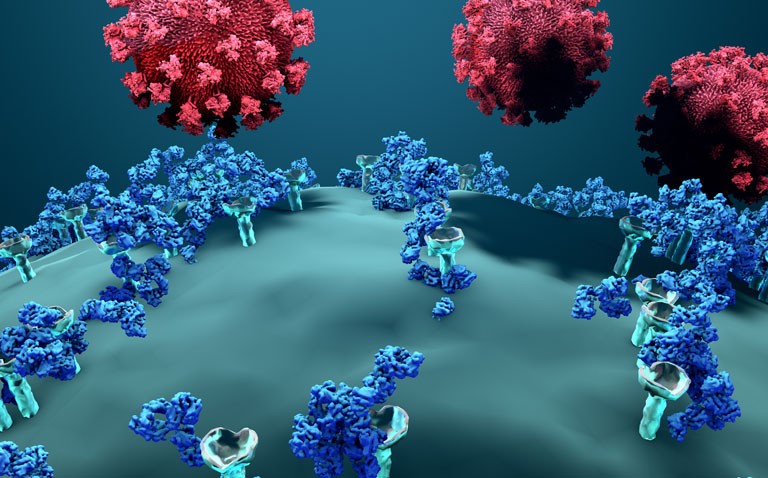A large COVID-19 serology study has revealed how nearly 90% of those testing positive, still have antibodies to the virus six months later.
How long do COVID-19 antibodies remain detectable in plasma after an acute infection is a question which is of great interest, especially given the mass vaccination program. In an effort to determine just how long these neutralising antibodies are present, researchers turned to the UK Biobank to try and answer this important question. The information in the Biobank, which is the largest and richest dataset of its kind, has since 2006, been collecting biological and medical data on half a million adults aged between 40 and 69 years living in the UK. For the latest study, the UK Biobank collected monthly blood samples from approximately 20,200 individuals for up to six months, to determine the extent of past infection with COVID-19 in a range of population subgroups across the UK. The duration of seropositivity was determined by the presence of antibodies among those who tested positive in the first month and who provided at least one subsequent sample and who reported an approximate date of symptom onset of infection and/or a PCR test result (705). The study also reported on the symptoms individuals had experienced.
Findings
In total, 18,893 participants (56.5% female) of whom 87.4% were of White ethnicity, provided at least one sample between May and December 2020. Overall, only 1699 (9%) had at least one sample that was seropositive for COVID-19 during the study period. The seroprevalence was 6.6% at baseline (end of May to June 2020) but had increased to 8.8% at the end of the study (December 2020) and this increase occurred to a similar extent in both sexes. However, there was a significant difference in seroprevalence between different age groups ranging from 13.5% in those aged under 30 to 6.7% among those aged 70 and over. There was a wide difference in seropositivity between ethnic groups, being highest in Black ethnicity (16.3%) individuals and lowest in those of White ethnicity (7.5%). The highest prevalence was in London (12.4%) and lowest in Scotland (5.4%). A further finding was how rates varied across London, ranging from 14.7% in the East to 10.5% in the West of the capital. Among the 705 participants for whom the duration of seropositivity could be assessed, 86 (12.2%) sero-reverted (i.e., had a subsequent negative test) within six months. Thus 87.8% (619/705) remained sero-positive for at least 6 months after infection.
The most common symptom associated were seropositivity was a loss of sense of taste/smell (odds ratio, OR = 29.8, 95% CI 22.8 to 38.9), followed by fever and chills although 24% of seropositive cases were asymptomatic and 40% did not report having one of the three “classic” COVID-19 symptoms.
Citation
Biobank. https://www.ukbiobank.ac.uk/media/x0nd5sul/ukb_serologystudy_report_revised_6months_jan21.pdf










